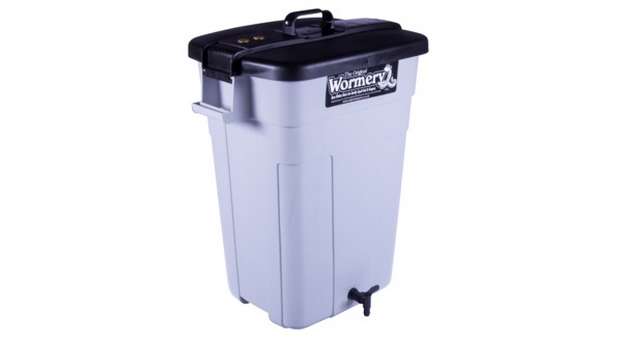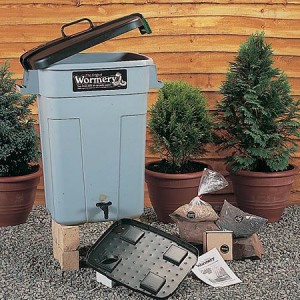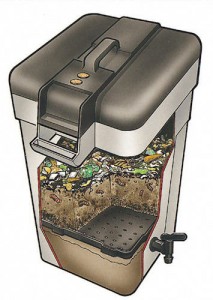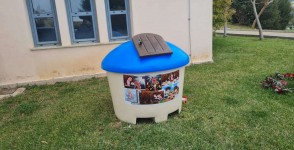
Original Wormery
The Original Wormery is our bestselling ‘all-in-one’ Wormery and was the very first commercially available Wormery – invented nearly 20 years ago by our MD, Clive Roberts. The Original Wormery has been developed and advanced since its first incarnation but remains independently, expertly acclaimed. Featuring double brass-aeration vents, a high-quality rubberised lid seal and integrated, patented, drainage system The Original Wormery is particularly stable and built to a very solid finish.
- The first commercially available Wormery, ever!
- Everything you need is included (no hidden extras required!)
- Tiger Worms included!
- Completely Sealed (Designed to keep Flies out and Worms in!)
- Brass Aeration Vents for airflow
- Patented Drainage System
- Πατενταρισμένο σύστημα αποχέτευσης.
- Keep it indoors or out!
- Capacity: 100 Litres
- 762mm x 610mm x 432mm
Compost worms are different from common garden worms that live in soil. Unlike earthworms, compost worms do not make burrows in the soil, but live in the surface layer (the top 30cm or 12 inches). They have evolved to eat rotting plant matter on the forest floor, and are perfectly suited to break down food waste.
The compost they produce is pH neutral, and contains many of the most important trace elements for healthy plant growth. Compost worms are generally smaller than earthworms. A compost worm can eat its weight in food a day!
Compost worms benefit from a balanced diet. They will eat most normal kitchen fruit and vegetable scraps. Avoid feeding the worms large quantities of meat, citrus, onions and dairy foods. Some processed food also contains preservatives, which discourage the worms from eating it. These foods won’t harm your worms, but they will avoid them and those scraps will break down and rot in the bin. The worms will eat their preferred food first but like to have some variety. The smaller and softer the scraps, the easier it is for the worms to digest and process them into castings.
What do worms eat?
| LIKES | DISLIKES |
| Most fruits and vegetables | Citrus, acidic fruit skin |
| Pulp from the juicer | Spixy foods, onion, garlic, leeks |
| Cooked food | Meat, dairy products |
| Tea leaves/bags & coffeee grounds | Bread, pasta and processed wheat products |
| Crushed/ground eggshells | Shiny paper |
| Hair, vacuum cleaner dust, soiled paper, handy towels, shredded egg cartons, paper lunch wrap | Fats or oils |
| Shredded moist newspaper & cardboard | |
| Lawn clippings in small quantities | |
| Sawdust, wood ash |
Compost worms will also eat garden or yard waste, and animal manure. If adding lawn clippings take care to only add a little at a time. Fresh lawn clippings can heat up and cause problems. If you do place animal manure in your bin ensure that the animals have not been treated with anti-worm medication, as it may still be effective in their dung!
It is also not advised to use dog or cat droppings if you intend to use the castings in your food garden, as the animals may have gut parasites, which can potentially infect humans.





